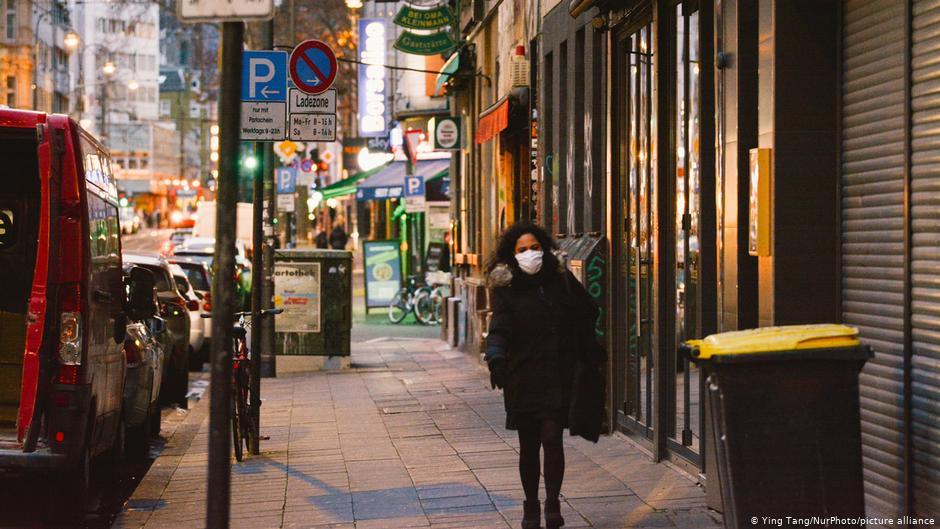
Germany’s federal government and state leaders agreed on Wednesday to extend the nationwide shutdown until March 7, beyond the previous February 14 deadline.
Though overall infection numbers in the country are declining, concern is rising about new variants.
The current shutdown began in November and was extended and toughened before Christmas, with the number of COVID-19 patients threatening to overwhelm hospitals. A leaked draft statement on Tuesday stated that Germany had made progress in curbing the rate of infection.
What do we know so far?
Following Wednesday’s summit, Saxony State Premier Michael Kretschmer said the relaxation of restrictions would be discussed when the seven-day case index drops below 35 cases per 100,000.
“We will talk about that in March. Everyone should remain cautious: We don’t want to be careless,” Kretschmer said.
A decision paper released after the meeting said Chancellor Angela Merkel and the state leaders would meet again on March 3 to assess the situation.
Other measures that were discussed included:
- Hairdressers will be allowed to open again starting on March 1 if they follow rigorous hygiene conditions.
- Schools and daycare centers should be “the first to gradually reopen,” but it is for individual states to decide how and when.
What are the current rules?
- All nonessential shops and services remain closed.
- People in shops and on public transport are required to wear medical masks, which include surgical masks as well as FFP2 filter mask.
- Employers must, wherever possible, allow employees to work from home until March 15.
- Contact at private meetings is restricted to just one other person not living in the same household.
- Schools are largely closed and students are taught through distance learning.
Despite decline, variants pose concern
Germany’s national disease control center last week said that the more contagious variant of the virus first observed in Britain has now been seen in most of Germany’s 16 states.
Another variant from South Africa has also been reported several times in Germany.
“Considering the virus mutations, the steps to lift the restrictions must come carefully and gradually in order to avoid risking the successful curbing of infections,” the draft document had stated.
By DW News




